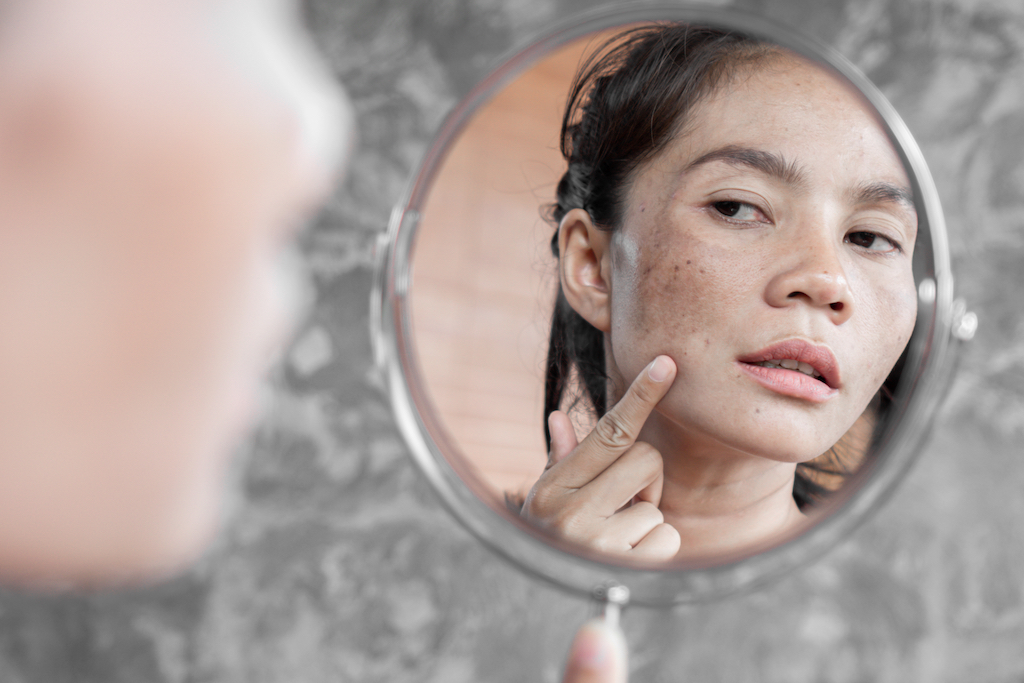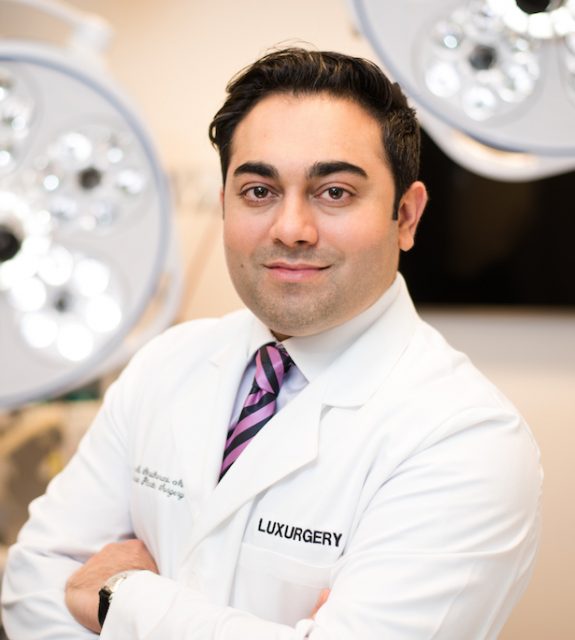Born in London, Dr. Purvisha Patel was raised in Wales (United Kingdom) and Virginia. She completed her undergraduate and medical school studies at the University of Virginia. She completed her dermatology training at The University of Tennessee Health Science Center in Memphis. Dr. Patel is certified by the American Board of Dermatology and is a member of the American Academy of Dermatology and the American Society for Dermatologic Surgery. Dr. Patel’s expertise in skin and skincare is also seen as she formulated and patented the Visha Skincare line when she saw that her products were working on patients of all ages, genders, and skin types. Dr. Patel is also a beauty influencer and her highly published dermatologist publications include Allure, Elle, Vogue, Cosmopolitan, Prevention, Readers Digest, Shape, Women's Health, etc. Haute Beauty expert Dr. Patel explains everything you need to know about the causes of hyperpigmentation, how to treat it, and product recommendations.
 Photo Credit: ShutterstockHaute Beauty: What is hyperpigmentation?
Photo Credit: ShutterstockHaute Beauty: What is hyperpigmentation?
Hyperpigmentation is when the skin is darker in some areas than the surrounding skin.
• Skin of color patients is most concerned by skin hyperpigmentation and its impact on physical, emotional, and social life.
• Hyperpigmentation is the #1 aesthetic concern of Latin type patients, making up 80% of Latin patient concerns visiting Aesthetic Dermatologists. Hyperpigmentation has a negative impact on the quality of life of patients, affecting their psychological and emotional well-being.
• PIH is the #1 aesthetic concern of West Asian & African type patients, with 19.9% prevalence and making up 70% of African-type patients visiting Aesthetic Dermatologists for pigmentation concerns. The post-acne scarring and dyschromia may distress patients more than the actual acne.
Facial Aging Dyschromia is the #1 aesthetic concern of East Asian type patients. Flawless skin tone is of utmost importance for Chinese Asian women, particularly as they start aging.
HB: What causes it?
Hyperpigmentation occurs when the melanocytes or pigment-producing cells of the body get excited and bigger. These cells are excited by: UV radiation, heat, inflammation, and hormones. Melanocytes are not evenly distributed in the skin, so the skin can develop patches of discoloration when the melanocytes swell/get excited. HEV light from devices or blue light can also contribute to hyperpigmentation so wearing an SPF inside is important as well as wearing a hat and sunscreen outside.
HB: What are some product recommendations?
1. Wear a tinted SPF >30 with a broad spectrum daily, when inside and outside
2. Your dermatologist may recommend a prescription of hydroquinone to lighten the dark spots
This medication has side effects if used for a long amount of time, and is too dangerous to be sold over the counter anymore. Cysteamine, a newer prescription tyrosinase inhibitor with fewer side effects is now available on the market as well.
A formulated and patented Illuminotex, a blend of natural lightening agents, to work the same as the prescription-strength hydroquinone, without the side effects. It has ingredients such as azelaic acid, licorice, kojic acid, vitamin C, and retinol to work synergistically to lighten dark spots.
HB: Do you offer treatments for hyperpigmentation? If so, which ones are the most effective?
In-office treatments for hyperpigmentation, first address the underlying reason for hyperpigmentation.
Treating acne, for example, to decrease the resulting hyperpigmentation. Chemical peels are very effective, as are microneedling treatments in combination with lightening serums. Lasers can be used in some cases with melasma or sunspots as well.
HB: How long does it take to fade?
Using topical agents, it generally takes up to 12 weeks to see results. With in-office procedures, 6 weeks. Remember that no matter what is done to shrink these melanocytes to make them not apparent, they will swell again with the above stimuli- so it is imperative to wear sunscreen and practice sun and inflammation protection.
HB: What are some preventive measures to consider?
Diet can also contribute to inflammation in the skin. I tell my patients to drink 6 glasses of water, get 8 hours of sleep, take a multivitamin, take a probiotic, decrease sugar, dairy, and gluten intake in the diet to help with inflammation in the body as well.
Moisturize your skin daily after bathing. This traps moisture and prevents water loss. When the skin is dry and cracked, this can also lead to inflammation in the skin and can worsen hyperpigmentation.
For more information, visit Dr. Patel's Instagram or Facebook!
























